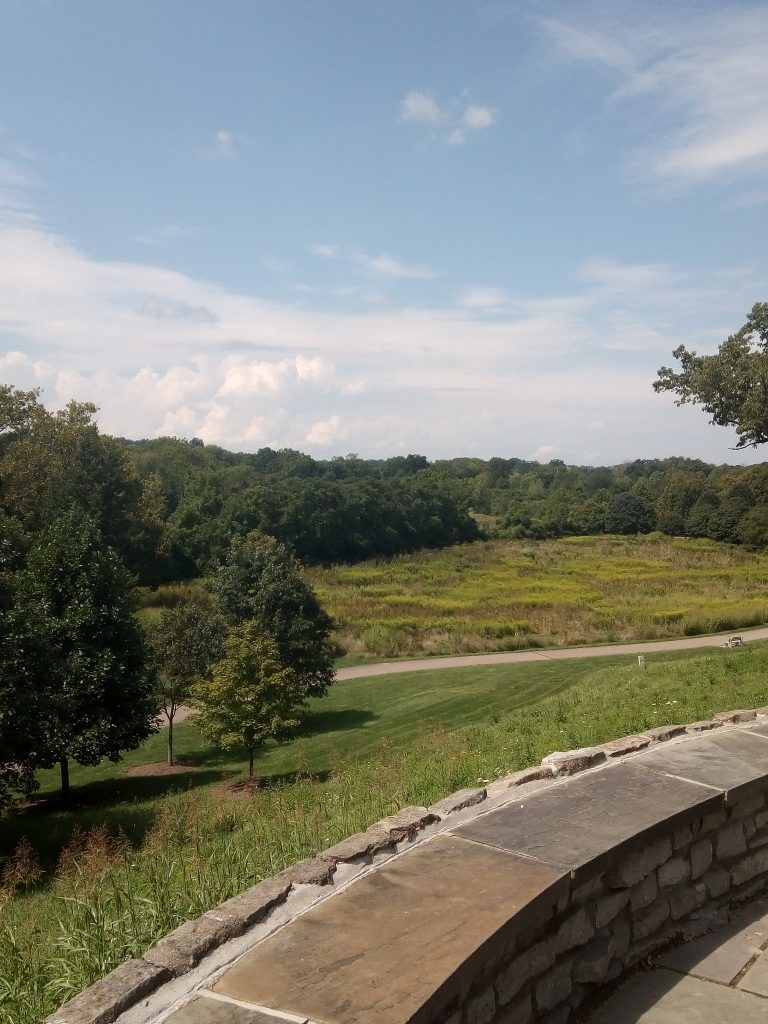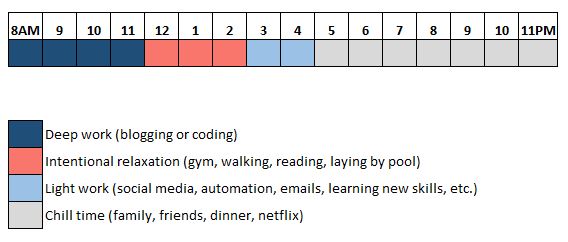
6 min read
“Nothing is harder to do these days than nothing.” – Jenny Odell
I just finished reading How to Do Nothing by Jenny Odell, a book that first caught my attention because of the title.
In a world that obsesses over productivity and growth, I was caught off guard by a book that seemed to preach the opposite: how to do nothing.
The title is a bit misleading, though, because the book isn’t actually about how to do nothing.
Rather, it’s about how our most limited resource – our attention – is often tied up in social media, the news, and other fleeting, insignificant attention-grabbers and why this tends to have negative effects on our relationship with people, time, and the environment.
At its core, this book is about how to regain control over our attention so that we can focus on things that lead to fulfilling work, relationships, and an overall satisfying life.
Writing a review of this book might seem like a deviation from my regular personal finance-themed articles, but I’d argue that it’s not. At its core, personal finance is the art of using money to gain freedom over your time.
I don’t care about the exact numbers I see in my financial accounts; I care about the freedom that those numbers give me.
And the things that I choose to focus on with my freedom are what dictate my quality of life, which is why this book is valuable to me – it’s all about how to focus on the right things to ensure that I’m living the life I want to live on my terms and to ensure that my attention isn’t being tied up in places and things that don’t matter.
So, without further ado, here are my top three life lessons from “How to Do Nothing” by Jenny Odell.
Life lesson #1: Doing nothing is therapeutic.
“In such times as these, having recourses to periods of and spaces for ‘doing nothing’ is of utmost importance, because without them we have no way to think, reflect, heal, and sustain ourselves…”
Just as it can be physically detrimental to exercise for hours on end without resting, it can be mentally detrimental to be on our phones for hours on end taking in and processing new information without giving ourselves a break.
This is why doing nothing can be therapeutic. In a world where most of us have a smart phone within arms reach at all times, taking the time to disconnect and do nothing gives our brains a chance to relax.
Often, the best ways to maximize the therapeutic benefits of doing nothing involve being in nature, such as:
- Taking a stroll through a garden
- Sitting on a park bench
- Gazing at the clouds during the day
- Gazing at the stars in the evening
This last point – stargazing – is actually an activity that came up in another one of my favorite books, Tools of Titans by Tim Ferriss. In an interview with Tim, physician and author BJ Miller points out that stargazing is an activity that can help remind us just how massive the universe is and how small most of our problems actually are:
“When you are struggling with just about anything, look up. Just ponder the night sky for a minute and realize that we’re all on the same planet at the same time.
As far as we can tell, we’re the only planet with life like ours on it anywhere nearby. Then you start looking at the stars, and you realize that the light hitting your eye is ancient, [some of the] stars that you’re seeing, they no longer exist by the time that the light gets to you.”
He goes on to add:
“Just mulling the bare-naked facts of the cosmos is enough to thrill me, awe me, freak me out, and kind of put all my neurotic anxieties in their proper place. A lot of people—when you’re standing at the edge of your horizon, at death’s door, you can be much more in tune with the cosmos.”
Activities like stargazing, going for a walk, or just sitting outside in nature might seem unproductive, but they can be highly therapeutic and healing. In an age where mental health problems and anxiety are on the rise, doing nothing offers a free form of therapy.
I personally love going for walks in the middle of the day because it’s a great way to give myself a mental break after doing deep work for three or four hours in the morning.

In a previous blog post, I explained that I’ve found the following schedule to be optimal for both my productivity and well-being:

That patch of time directly following deep work that I label as “intentional relaxation” is a crucial part of my day where I give my brain a chance to relax and just do nothing. Funnily enough, this is often when I come up with ideas for new projects and article ideas.
Life lesson #2: Everything is interesting if you go deep enough.
“In Zen they say: If something is boring after two minutes, try it for four. If still boring, then eight. Then sixteen. Then thirty-two. Eventually one discovers that it is not boring at all.” – John Cage
While the internet has made it exponentially faster to gain access to information, it has also had the odd effect of causing us to skim the surface of most subjects rather than diving deeper to gain a true understanding of things.
For example, most people prefer to read articles instead of books. Even more prefer to read tweets instead of articles.
In general, people prefer to absorb information in the fastest manner possible. And while this might be an effective way to gain a surface-level understanding of many subjects, it’s not a great way to gain a deep understanding of things.
And the real problem with only having a surface-level understanding of topics is that it makes everything seem boring. If you can learn everything there is to learn about a subject in a single 280-word tweet, what’s the point of taking the time to explore that subject more deeply?
One example that Jenny Odell frequently uses throughout the book is the activity of bird-watching. She explains that when she first started, she didn’t know a thing about birds. The more she practiced observing and listening to the birds around her though, the more she realized just how complex and intricate they could be.
Each species of bird has unique sleeping habits, eating patterns, mating rituals, and migratory patterns, but it was only after she started taking the time to observe birds and research them that she discovered just how fascinating and diverse their lives could be.
She points out that gaining a deeper understanding of birds is in direct contrast to taking in shallow, fleeting information on different topics via social media, which is partially why it’s such a rewarding activity.
As it relates to the topic of retirement, many people say they could never imagine retiring early because they don’t know what they’d do with all that free time. In other words, people fear that they would become bored without a day job to occupy their time.
The antidote to boredom, as Odell points out, is to recognize that nearly everything is interesting if you explore it deeply enough.
Physicist Richard Feynman also echoed this point:
“I don’t know anything, but I do know that everything is interesting if you go into it deeply enough.”
I recently experienced this phenomenon when I stumbled across the following clip of a kingfisher hunting for fish. It’s able to keep its head completely still while moving its body so it can more easily spot fish under the surface:
This lead me down a rabbit hole of researching kingfishers.
How on earth do they move their body like that?
What type of fish do they hunt, anyway?
Do young kingfishers learn this hunting technique from their parents?
Needless to say, the deeper I went, the more I realized that kingfishers are pretty damn cool. This is a perfect example of how almost everything around us is interesting if we explore it deeply enough.
Life lesson #3: Your happiness is dependent on the things you focus on.
Your happiness is largely dependent on what you choose to focus on.
If you spend the majority of your time thinking about all of the things you don’t have in life – a bigger house, a better car, a newer watch – then you’ll probably feel rather miserable.
On the other hand, if you wake up each morning and count your blessings – your health, your family, your friends, access to running water, food in the refrigerator, etc. then you’re far more likely to be feel a sense of gratitude.
This is why it’s crucial to realize that you should be selective in what you choose to focus on. Don’t just give your attention to anything.
Specifically, Odell points out that the endless scroll features on social media platforms like Twitter, Instagram, Facebook, and Reddit make it easy for us to get lost in a never-ending scroll of information that isn’t even relevant to our lives.
In regards to personal finance, it’s particularly important to be selective in what we choose to focus on.
We can spend our time monitoring the stock market closely, but at the end of the day it’s out of our control. We’d be better off automating our investments and spending the bulk of our time focusing on what we can control – things like increasing our income and keeping our spending in check.
In both finance and in life, it’s important to be selective in what we focus on.
Bonus: Jenny Odell on “How to Do Nothing” | Google Talks
Jenny Odell recently gave a talk at Google where she summarized many of the main points in her book. Check it out here:
- The Ad Revenue Grid - August 6, 2021
- Attract Money by Creating Value for a Specific Audience - July 13, 2021
- The 5-Hour Workday - March 26, 2021
Full Disclosure: Nothing on this site should ever be considered to be advice, research or an invitation to buy or sell any securities, please see my Terms & Conditions page for a full disclaimer.

